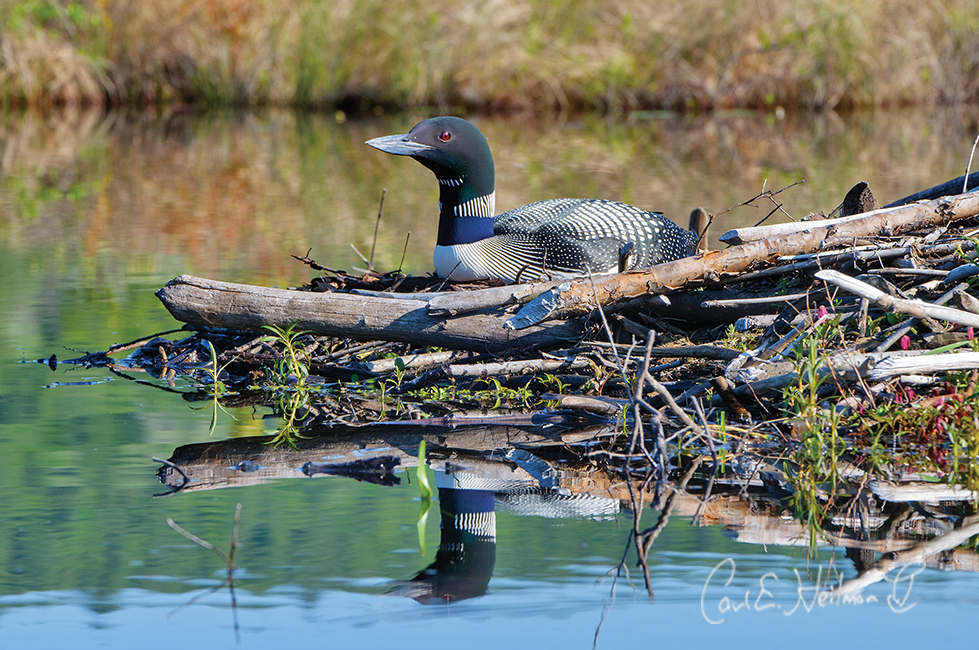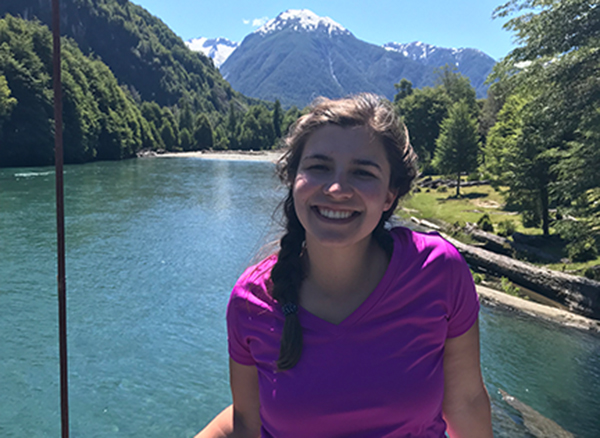
Citizen Science: You Don’t Need to be a Scientist to Make a Difference!
Wednesday, August 22, 2018
By: Revée Needham - Adirondack Council's Colgate University Upstate Institute Summer Field School Fellow
What is Citizen Science?
While popular discourse may say that only those with a scientific degree can contribute to research and society's understanding of environmental issues, that is simply not true. Citizen science allows for the inclusion of everyday people into scientific dialogue. With a bit of training through a video tutorial on how to use a smartphone app or a workshop on how to spot invasive species, you too can help scientists! Individuals often have an in-depth wisdom regarding which species have traditionally been found in their area or the timing of weather events-useful information that is needed by scientists worldwide. The world is comprised of a small fraction of scientists, but citizens can make a difference on a much larger scale given the sheer number of people. While in your backyard or on your favorite hiking trail, you can make observations and take pictures that can assist scientists worldwide. Learn more about projects in the Adirondacks, New York, and around the globe you can participate in.
Adirondack-Specific Projects
Every year for the past 18 years, the annual Adirondack Loon Census takes place thanks to help of countless volunteers. Formerly sponsored by the Wildlife Conservation Society, you can now find information from the Adirondack Center for Loon Observation. All you need to do is dedicate one hour in July to loon research by enjoying the beauty of a lake or pond!

Fighting the spread of invasive species is a crucial task in the Adirondack Park. There are numerous trainings to equip you with the information necessary to identify them. On August 2, the Ecological Research Institute and the US Forest Service held a workshop on how to identify the Emerald Ash Borer. Throughout the year, the Adirondack Park Invasive Plant Program (APIPP) hosts various trainings on both aquatic and terrestrial invasive species. Additionally, you can attend workshops with the Adirondack Mountain Club.
New York and National Projects
For amateur and expert birders alike, participate in the either the Audobon Society's annual Christmas Bird Count in December or Great Backyard Bird Count every February. During the specified weeks or days, you can contribute to the identification of birds in your neighborhood.
You can also be a citizen scientist from the comfort of your own home with the help of a computer. Review camera footage of NY animals with Candid Camera and identify which species are on camera.
Across the world, you can contribute to the EarthEcho Water Challenge by collecting water quality samples from lakes and rivers in your community.
If you own a pool, participate in the annual Asian Longhorn Beetle Pool Survey through the Department of Environmental Conservation. Simply take pictures and collect any insect samples you find.
To learn how climate change is affecting species' timing, such as an earlier bloom of your favorite flower or the later arrival of a bird, check out the National Phenology Network's program, Nature’s Notebook.
Learn more about NY-based projects for you to volunteer and participate in across the U.S. For your next vacation, consider EarthWatch, where you volunteer your time on trips throughout the world!
 Sometimes, this is what science looks like. (Photo courtesy of Nick J Webb)
Sometimes, this is what science looks like. (Photo courtesy of Nick J Webb)
Smartphone Apps to Collect Data
To assist your collection of data for some of the above projects and more, there are easy-to-use smartphone apps. Armed with a little knowledge, your eyes, and the camera of your phone, you are ready to help further science in your backyard. Here are some examples of popular apps:
- iNaturalist: This all-encompassing app allows you to capture images and observations of both flora and fauna. You don’t need to be an expert biologist, the iNaturalist community can help you to identify the species in your picture! To contribute to the Adirondack Pollinator Project and other local efforts, be sure to submit your observations through the Lake Placid Land Conservancy project.
- iMapInvasives: This program allows you to focus on fighting the spread of invasive species in New York by alerting scientists of the spread of new invasive species.
- eBird: If you are an avid or amateur birder, this one’s for you! Instead of taking a picture of birds, which can be quite difficult, you submit a checklist of all the birds you saw in a location. You can also learn about which birds are commonly seen in your area.
- iSeeMammals: Contribute to Cornell University’s research by capturing signs of black bears in New York state.
You can browse the app store for more options or check out the following suggested apps from Scientific American and the Smithsonian.
While the above list of citizen science projects is nowhere near comprehensive, it gives you an idea of the variety available. There is sure to be a program to suit your interests, time commitment and ability! Enjoy the beauty of the Adirondacks while also contributing to the research and science that helps to protect the Park's legacy.
 Revée Needham is a recent graduate from Colgate University where she double-majored in Environmental Studies and Geography. At Colgate, Revée worked in the Office of Sustainability, where she further developed her passions for environmental stewardship and social justice. This summer, Revée is looking forward to exploring the Adirondacks, especially the trails, local farms, farmers’ markets, and small town communities!
Revée Needham is a recent graduate from Colgate University where she double-majored in Environmental Studies and Geography. At Colgate, Revée worked in the Office of Sustainability, where she further developed her passions for environmental stewardship and social justice. This summer, Revée is looking forward to exploring the Adirondacks, especially the trails, local farms, farmers’ markets, and small town communities!




